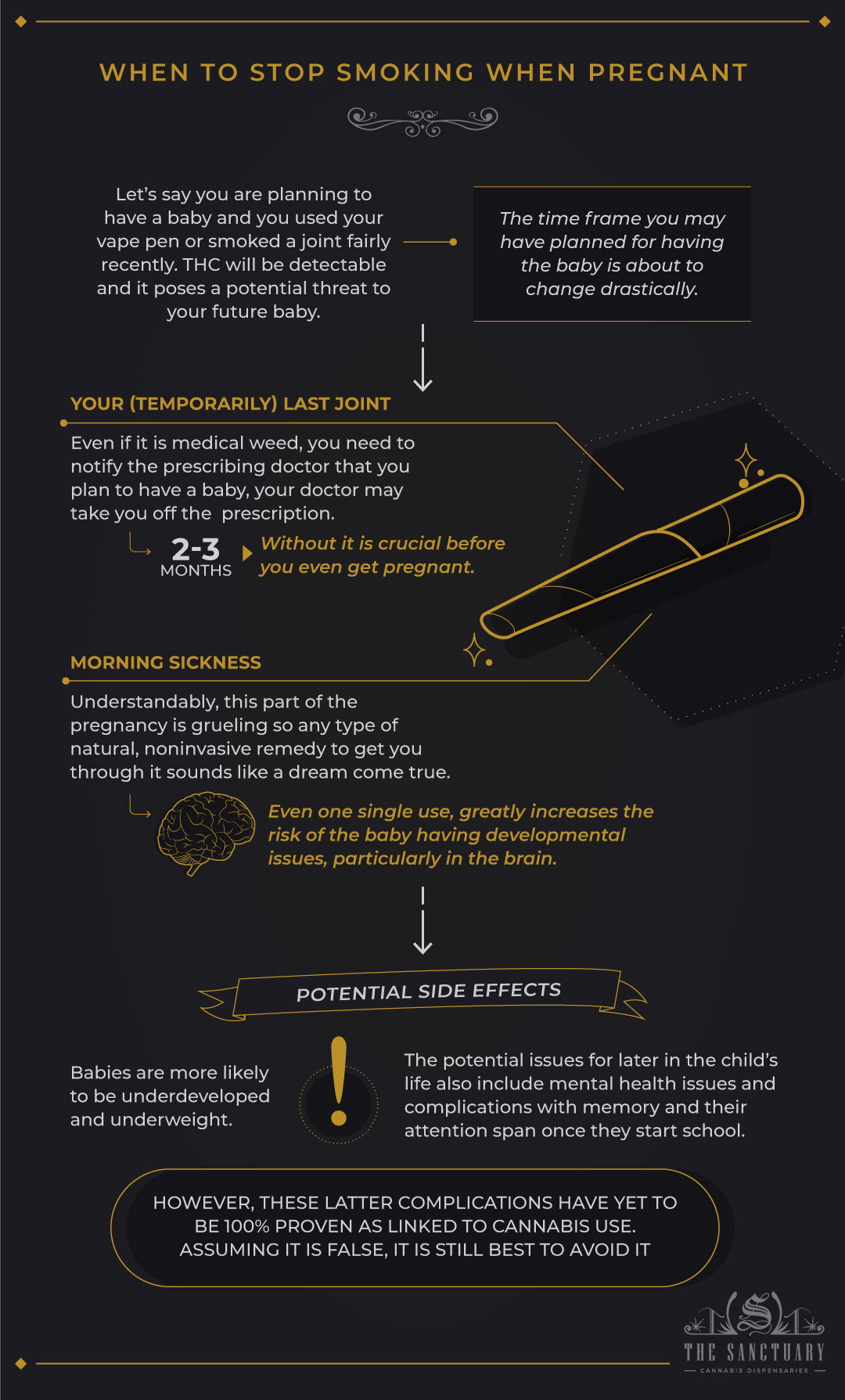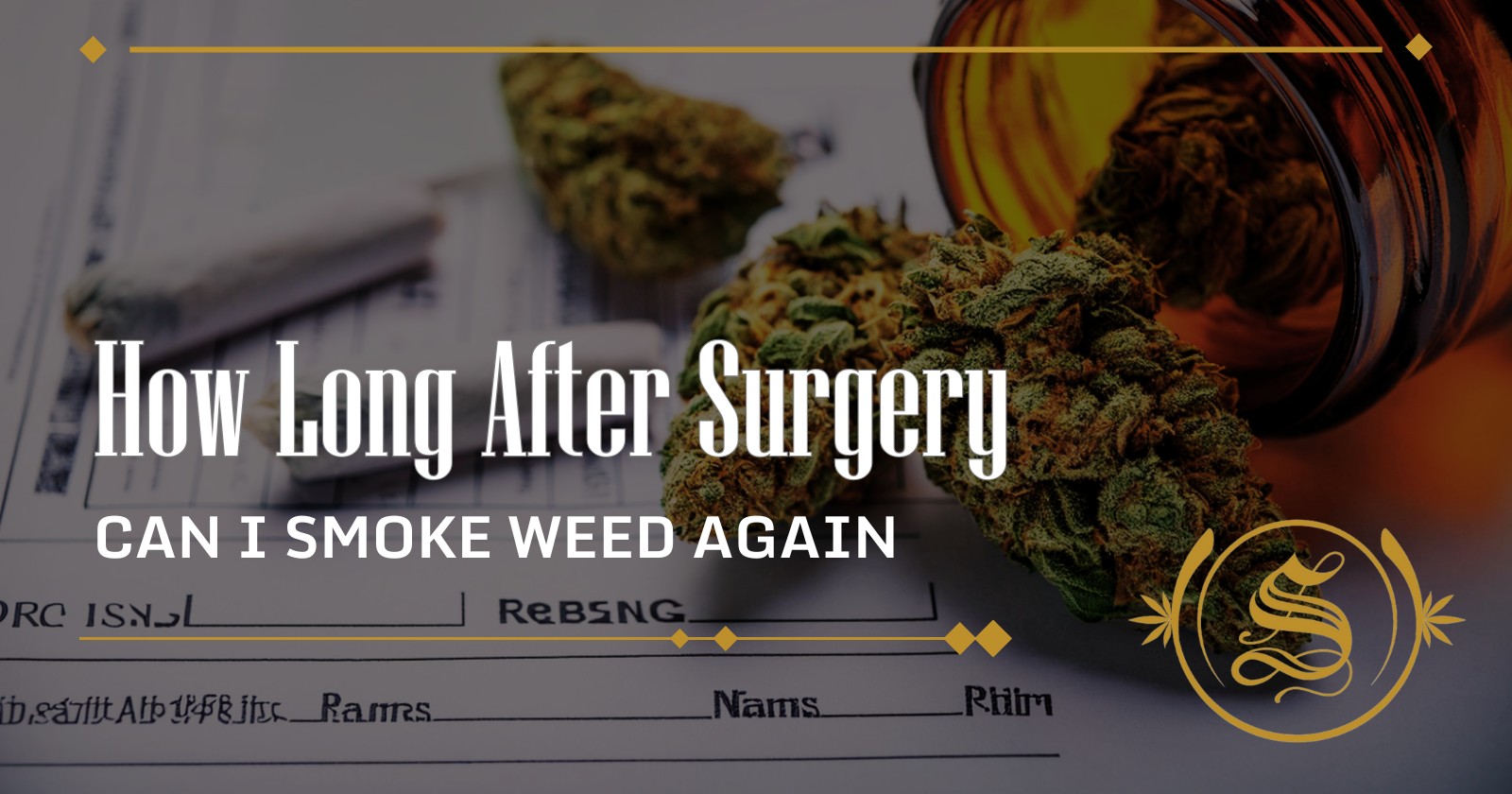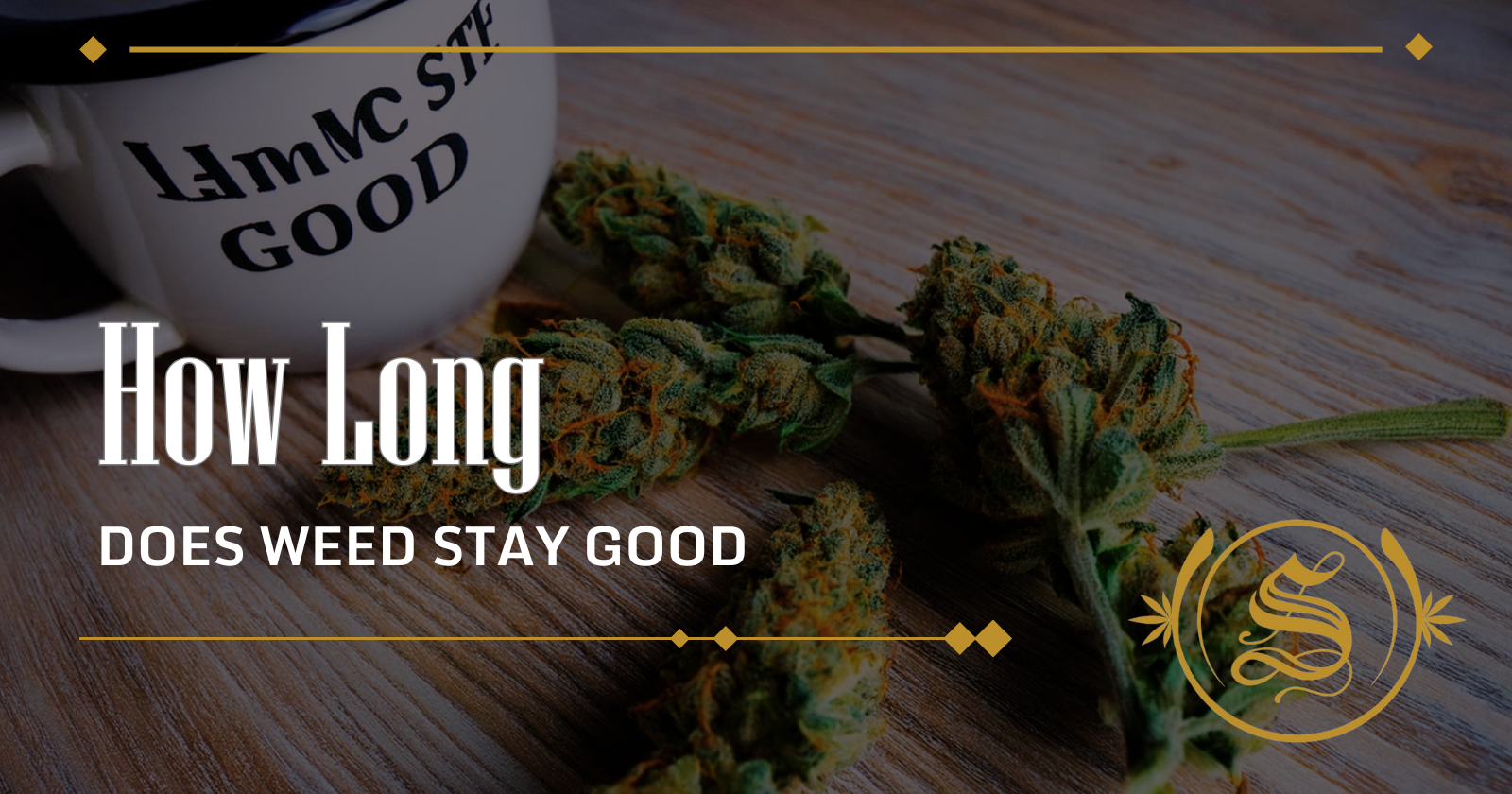Iftikhar Alam
Author
Reviewed by Cannabis Experts
Published on: June 17, 2022 | Updated on: September 11, 2024
It truly is a challenge today to have a conversation about natural medicine without at least mentioning weed. A plant used as a patented medicine as early as the 19th Century, weed has since become synonymous with treating a wide array of ailments in nearly every category of patient: but what about pregnant women?
As beneficial as weed is in general, those benefits do not (necessarily) apply to women who are eating for two. Unfortunately, those same cannabinoids that make weed a breakthrough have yet to be proven beneficial for the little ones in the womb. In rare cases, they could actually be harmful.
So, we are going to look at when to stop smoking weed when you are pregnant and what to avoid as far as cannabis consumption.
Weed and Pregnancy
But first, we need a general idea of weed and pregnancy: what exactly does that relationship look like? Well, there may be strength in numbers but the total number of pregnant women who reported to have consumed with child is less than 10,000: That is only 1% of the pregnant women in a 2020 study by the University of Elche. Of those few thousand women, about 3% reported their pregnancy as stillbirth, which is almost double the national average.
We may not have as many decades of research as other areas across millions of subjects, but enough has been done by verifiable doctors to conclude that smoking weed during pregnancy is a bad idea. In addition, all participants had a much greater risk of their babies being underdeveloped, premature and having long-term developmental issues.
How much is too much?
If we know that an occasional sip of alcohol, maybe a small glass of wine, will not harm the baby in the womb, does the same go for smoking a joint? Good question, but essentially, no. According to the U.S. Department of Health and Human Services, and this is from November of 2021, no amount of weed has been proven as safe during your pregnancy.
Also, THC can be detectable in newborn babies, and states like Colorado are required by law to report you to CPS. Remembering that one hit from one joint, especially infused joints, can leave traces of THC for hours or days, that literally does not leave any room to smoke weed while you are pregnant.
When to Stop Smoking When Pregnant

Let’s say you are planning to have a baby and you used your vape pen or smoked a joint fairly recently: Nothing from that will really harm you apart from THC being detectable for a while. Unfortunately, because it is detectable it poses a potential threat to your future baby, so the time frame you may have planned for having the baby is about to change drastically.
Your (Temporarily) Last Joint
Even if you are smoking weed medically and for a specific location, you still need to notify the prescribing doctor that you plan to have a baby. The doctor may immediately take you off the prescription and tell you that 2-3 months without it is crucial before you even get pregnant.
That number may change slightly depending on which doctor you ask, but the consensus is that everything that could potentially harm the baby (or you) is out of your system as quickly as possible and the mother stays off of it until after you have the baby.
Yes, that is almost a year, but think of the children.
For Morning Sickness
In recent years, more and more pregnant women have started turning to weed as a natural remedy for morning sickness, the rumors of which are virtually unfounded. Understandably, this part of the pregnancy is grueling so any type of natural, noninvasive remedy to get you through it sounds like a dream come true.
That is not the case for smoking weed, as even one single use, regardless of your health, greatly increases the risk of the baby having developmental issues, particularly in the brain.
Potential Side Effects
What we now know about the effects of smoking weed while you’re pregnant are that babies are more likely to be underdeveloped and underweight. In short, cannabis flower contains over 500 chemicals, the most prominent of which being THC, and all 500 pass through the mom’s placenta and into the baby. The potential issues for later in the child’s life also include mental health issues and complications with memory and their attention span once they start school.
However, these latter complications have yet to be 100% proven as linked to cannabis use, but not enough research has been conducted to give us the definitive answer. Assuming it is false, it is still best to avoid it as you would still be inebriated alongside hormones and changes to your body that already occur during pregnancy, and you don’t know how your body will react.
What Products to Avoid When Pregnant
As of April of 2021, the FDA has declared that no cannabis products are recommended during your pregnancy or breastfeeding, not even CBD products. It may sound a bit harsh considering the latter has numerous health benefits, but it is all to keep the baby safe and the research to say the products are safe remain very scarce.
At the same time, it is not too crazy to think that weed is among the other things to avoid when you are expecting: Alcohol, tobacco, hard drugs, it doesn’t matter where anything on the list ranks in safety, they could all still severely harm the baby as well as the mother.
When Can You Resume?
The million-dollar question now that we know that smoking while pregnant is off the table. It is very unlikely you will go through withdrawal during your pregnancy, but you can toke up once the moment you feel ready if you are not planning on breastfeeding.
THC stays in your system the longest for chronic users (in general, it stays in breastmilk for up to 6 weeks), it would obviously be passed to your baby, so if you are planning on breastfeeding, wait until the baby moves completely to formula and is in the care of your partner, nanny, etc. so that the little does not get any secondhand smoke.
The content provided on this blog is for informational purposes only and does not constitute medical, legal, or professional advice. Cannabis use is subject to local laws and regulations, which vary widely by jurisdiction. Always consult with a healthcare professional before starting any new treatment or altering an existing treatment regimen. The authors and publishers of this blog are not responsible for any actions taken based on the information provided herein. Use cannabis responsibly and in accordance with applicable laws. This blog is intended for adults aged 21 and over. The Sanctuary Dispensaries D186, D187.








